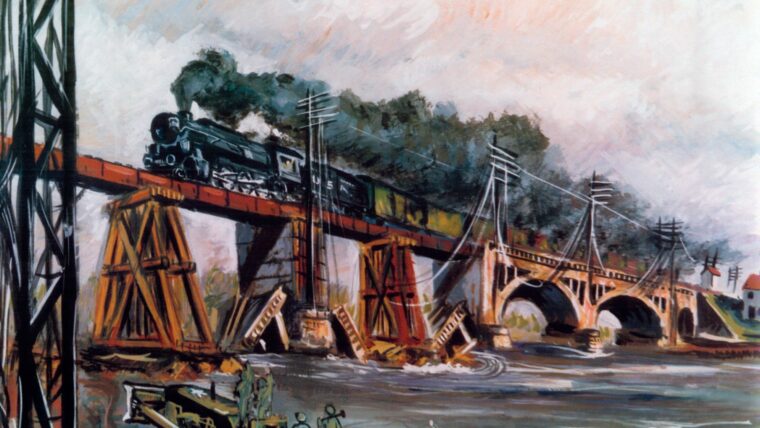
Normandy
The Trains That Fueled the Normandy Breakout
By Kerry SkidmoreHistorian Christian Wolmar concludes that the two world wars could not have been fought to such devastation without military railways, in his book Engines of War. Read more

Normandy
Historian Christian Wolmar concludes that the two world wars could not have been fought to such devastation without military railways, in his book Engines of War. Read more
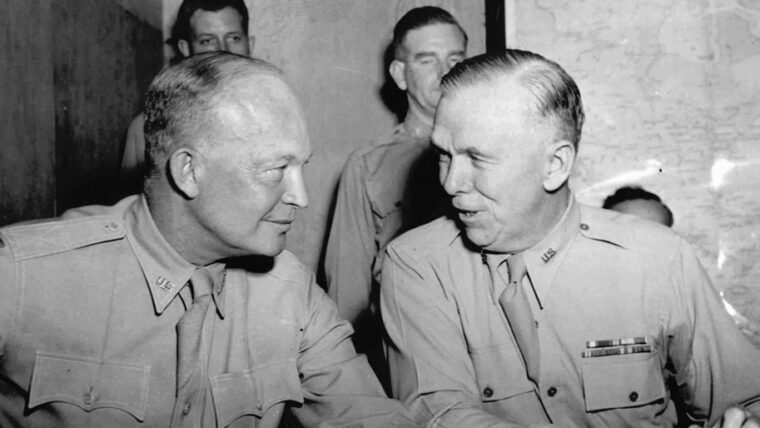
Normandy
President Franklin D. Roosevelt was disturbed in the autumn of 1938 by the Munich agreement, at which the rights of Czechoslovakia were signed away, and by reports of mounting air strength in Adolf Hitler’s Nazi Germany. Read more
Normandy
When Pearl Witherington Cornioley died quietly in 2008 at the age of 93 in a retirement home in the Loire Valley of France, some who thought they knew her well may have been surprised to learn that she had risked her life during World War II as an agent for the British Special Operations Executive (SOE). Read more
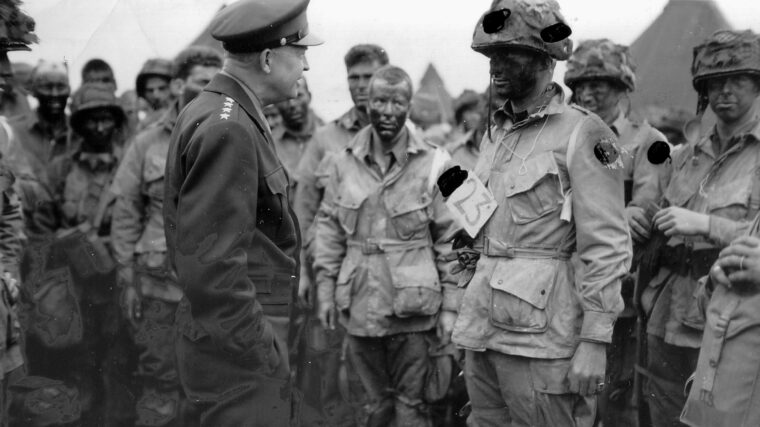
Normandy
In one of the most recognized photographs taken by U.S. Army cameramen during World War II, General Dwight D. Read more
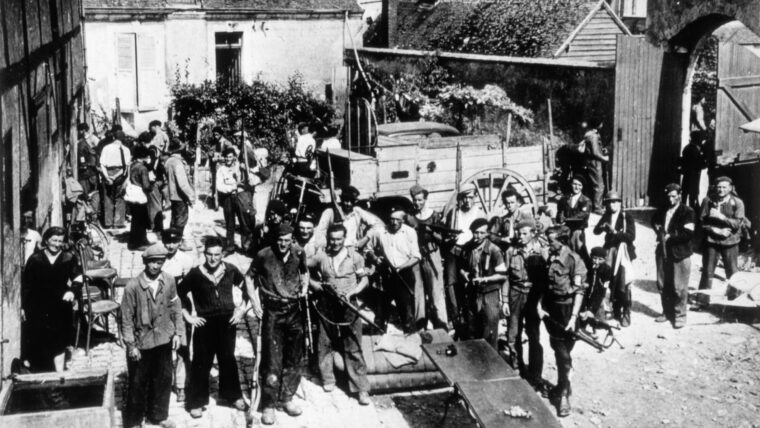
Normandy
The tempo of war planning intensified for the invasion of Europe during the early months of 1944. Finally, at daylight on June 6, 1944, Allied infantry stormed ashore along the German-held Normandy coast. Read more
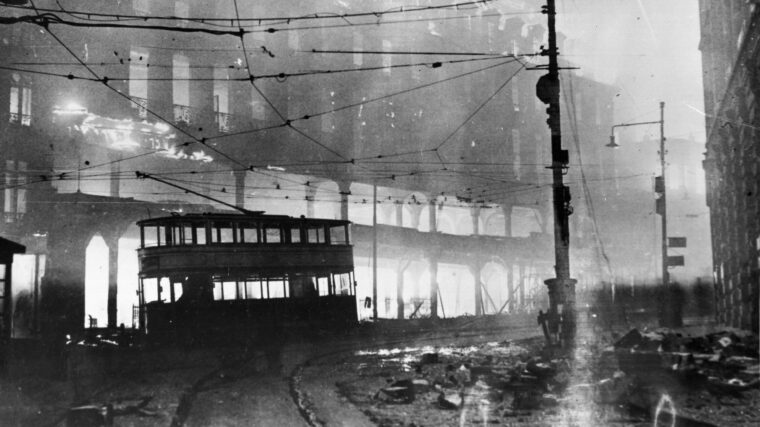
Normandy
On the evening of August 7, 1937, two neophyte radio broadcasters went to dinner together at the luxurious Adlon Hotel in Berlin, Germany. Read more
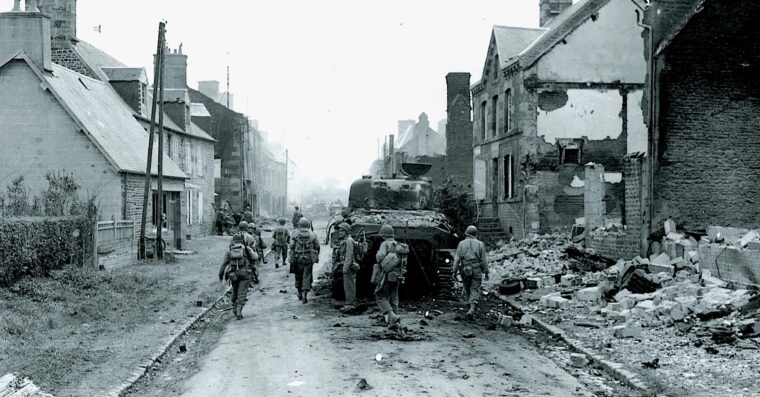
Normandy
By the morning of July 27, 1944, General Omar Bradley’s First U.S. Army had won the “Battle of the Hedgerows” in Normandy and stood ready to break out to the south. Read more
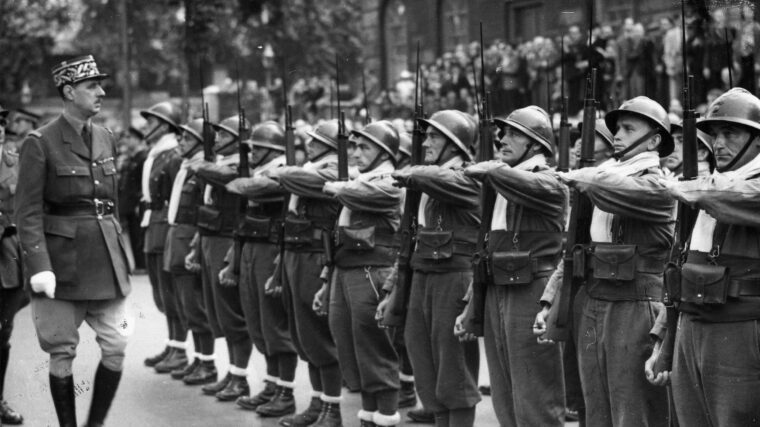
Normandy
On the evening of June 16, 1940, Marshal Henri Philippe Pétain was appointed Prime Minister of France. It was a critical time. Read more
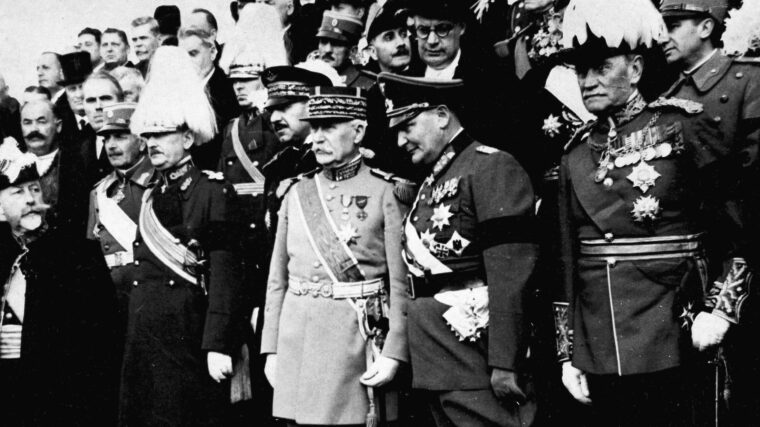
Normandy
“I’ve been old in all my ranks,” said Henri Philippe Pétain, created Marshal of France on December 8, 1918, at age 62. Read more
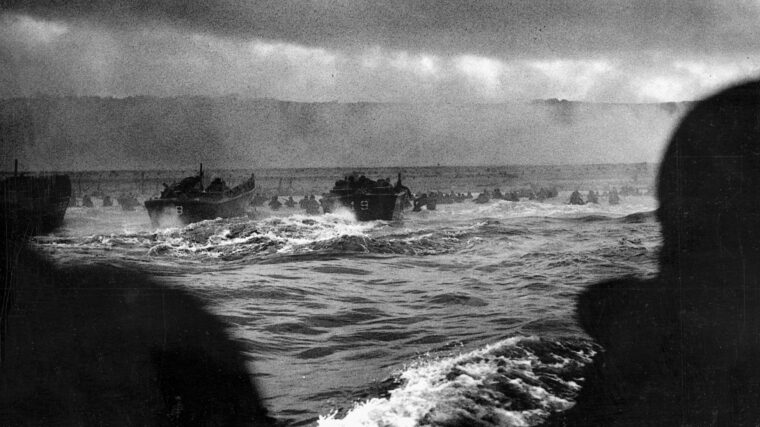
Normandy
Operation Overlord, the cross-Channel attack that hit the Nazi-occupied beaches of Normandy in 1944, was the culmination of a grand strategy adopted early in the war, followed sporadically during the years of conflict, and aimed at defeating Hitler’s Reich by striking directly at Germany by invasion. Read more
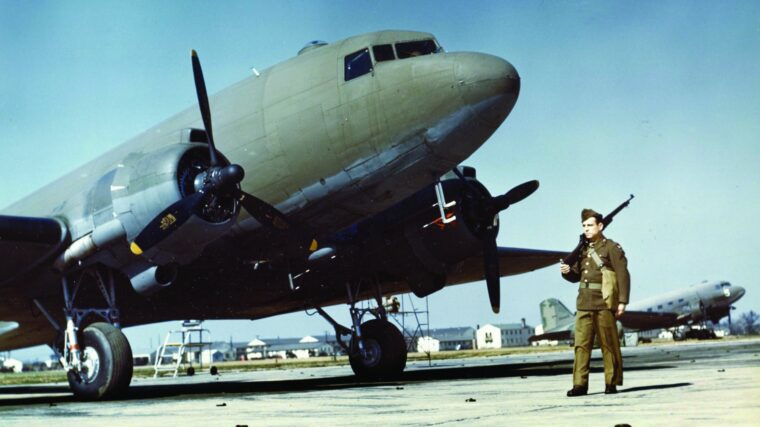
Normandy
Even though, technically at least, it was not a combat airplane, the performance of the Douglas C-47 transport led General of the Army Dwight Eisenhower to label it as one of the most important weapons of World War II. Read more
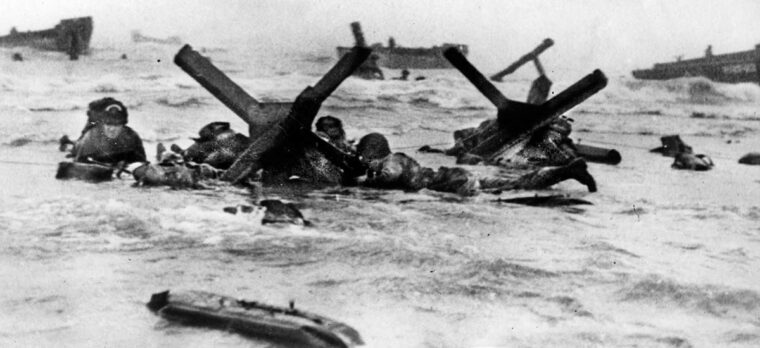
Normandy
Nineteen-year-old army combat engineer Jay Rencher blinked the salt spray from his eyes, filled his lungs, and again plunged beneath the cold, roiling waves. Read more
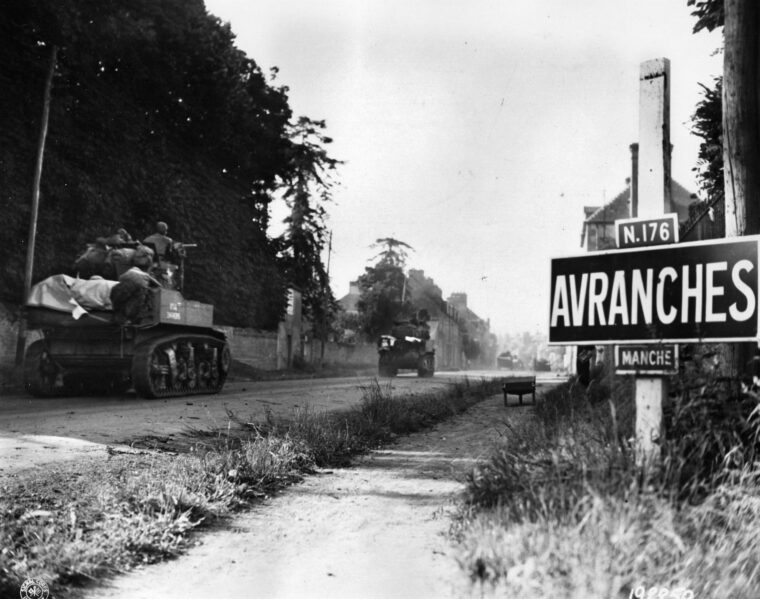
Normandy
Lieutenant General Omar Bradley had reason to be pleased by the last week of July 1944. His First Army had scratched out a substantial foothold on the Normandy coast, capturing three times more French territory than his British allies. Read more

Normandy
Sergeant Charles Callistan looked through the sights of an antitank gun at an approaching enemy tank. His weapon, a six-pounder cannon, was in the perimeter of a surrounded British outpost named Snipe. Read more
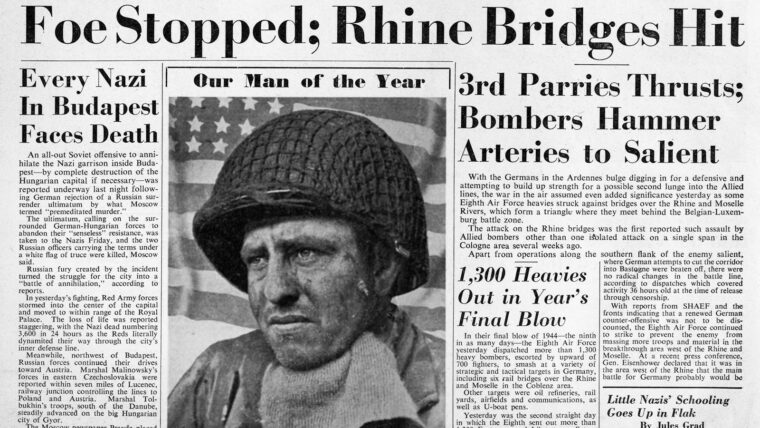
Normandy
During the closing days of 1944, editors at the London edition of Stars and Stripes decided to select a frontline GI as “Our Man of the Year.” Read more
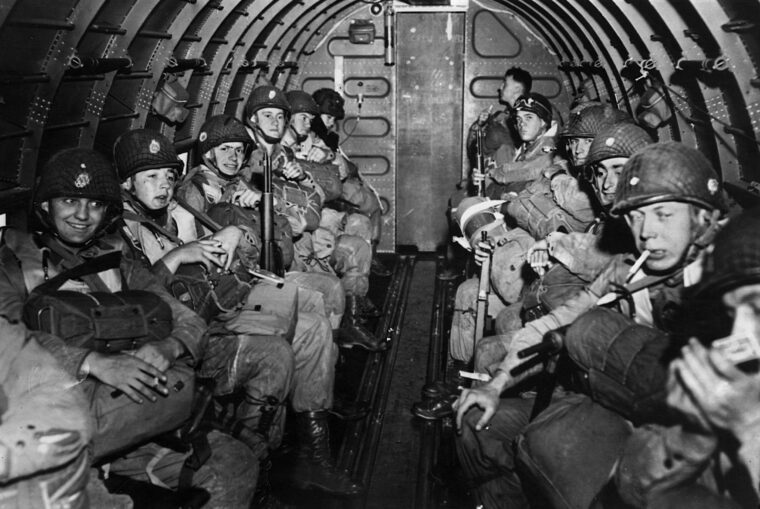
Normandy
Reginald Alexander was born in Gardnerville, Nevada, in 1924 to Scottish émigré parents who were originally from Westcolvin, Scotland. Read more
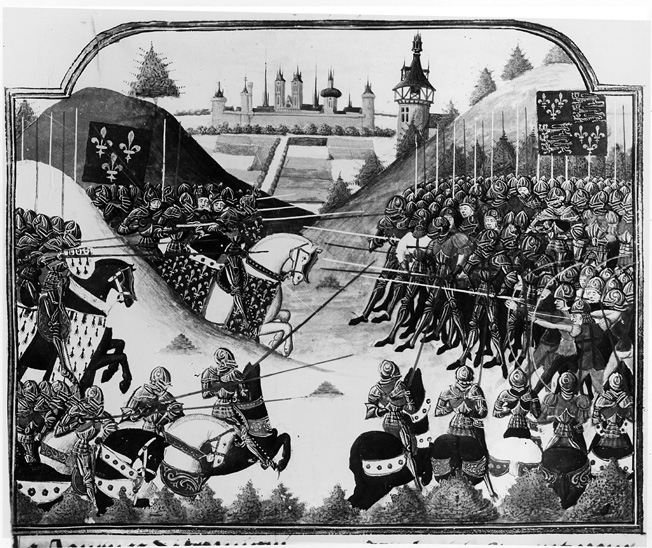
Normandy
No single Frenchman was more responsible for the rapid victories in Normandy and Gascony that drove the English once and for all from France than Jean Bureau. Read more
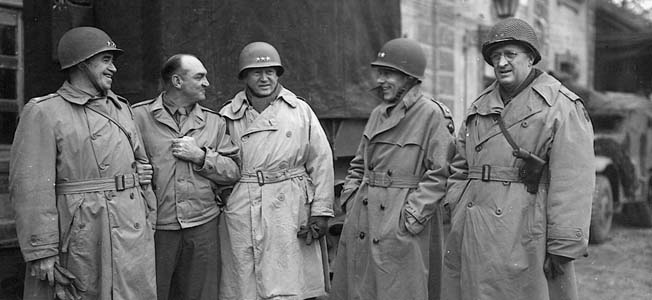
Normandy
When Adolf Hitler’s last major World War II offensive burst through the chill Ardennes Forest early on December 16, 1944, it scattered American frontline units and caused many anxious hours in the Allied high command. Read more
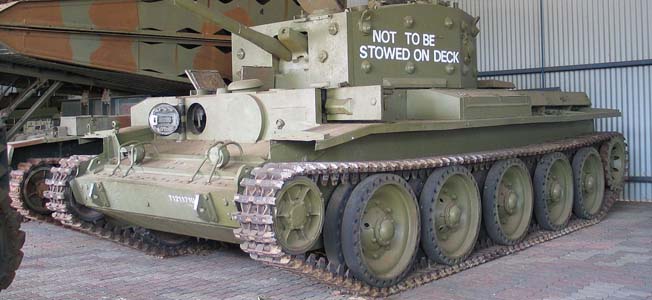
Normandy
At the outbreak of World War II, the British War Office assumed that conditions on the Western Front in France would be the same as those experienced in the Great War of 1914-1918. Read more
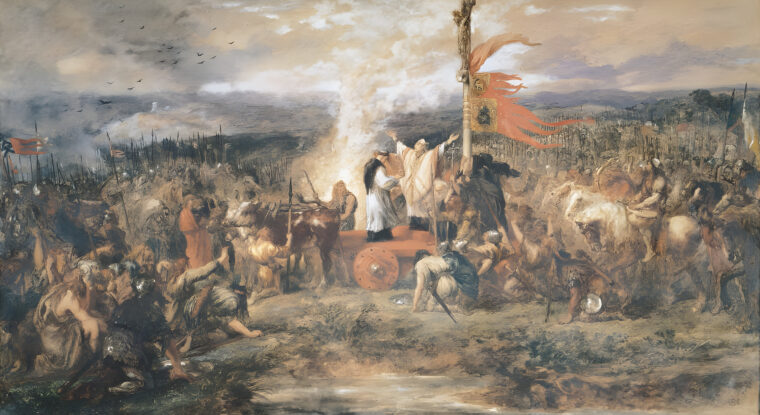
Normandy
The English commander, William de Aumale, heard the roar of the Scots army even before it appeared out of the early morning mists. Read more